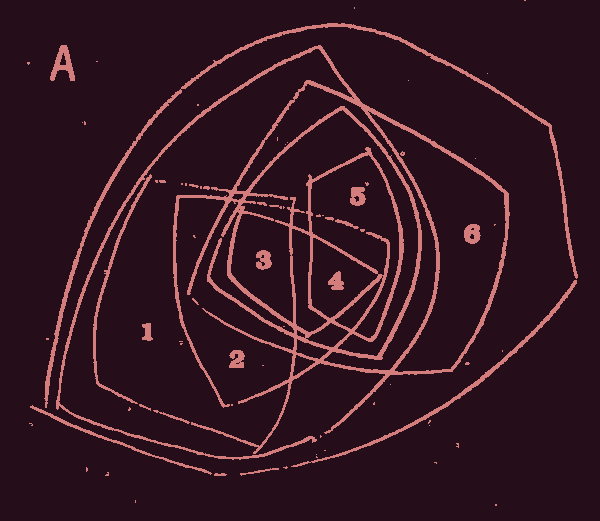the brain is not a filesystem

The idea that we should remember everything we read rests on a very particular and largely incorrect model of memory. It treats the brain like a hard drive, where books are files that either load completely or not at all, but memory is not a filesystem. (You're Not Supposed to Remember the Book by Horace Bianchon.)
I don't love to talk about reading books with other people in real-time—it feels too much like trying to impress on someone else how my eyes and brain perceive a certain color—but one remark from one conversation still sticks with me, months after the fact.
I was comisserating with someone on how books seemed to just pass through us. No sooner than when we flipped past the last page, that the plot, characters, themes, and whatever else constituted the last few-hundred pages and ten hours of experience, seemed to fade away to nothing. Recall was like trying to hold water in your hands.
I'd suggested: what about keeping a list of books you've read, and writing
your own synopsis beside each title?
Ironically, I was remembering a
passage from Kawabata's Snow Country, in which the protagonist
teases his love interest about such a catalogue. He calls it a complete
waste of effort
, and she agrees without complaint. But the both of them
know that he's wrong, that somehow the list of discrete data (author, title,
date, plot summary) all compiled together has the effect of distilling
and purifying the woman's essence.
The only reason why I remembered that passage was that I'd taken a note of it, going as far as to rewrite the entirety of it in a notebook—so surely, what I'd suggested did work. But even as those words came out of my mouth, I couldn't help but feel that I'd gotten the first principles all wrong. I didn't think that the residue of a book should be a synopsis of it, and I wasn't sure that I even cared.
Instinctively, I knew that whether I remembered the names of the characters, or their relations with one another, or the sequences of events they lived through, was of trivial, even of no importance. Even the vaguest outline of a book wasn't what I was looking for. Surely what Kawabata meant was that not that the list itself purified the woman's essence. The entries were just ancillary pieces of evidence, side-effects left behind by the event(s) of real significance: that she had read those books at all. That every word of the book had registered in her mind, however briefly, that she had ceded much of her consciousness to forces even beyond the writer's volition.
I can think of an example where I felt that a book had changed me without
doubt, and it has nothing to do with elements like characters or plot, or
even the content itself. Like Bianchon says in You're Not Supposed to
Remember the Book
, a novel is not a list of facts. With that, I
completely rescind my earlier advice.
I remember reading a thin book about environmental disasters that affected me deeply as a child, but that book is seemingly lost to history. I've tried multiple times to find it as an older teen and now as an adult in her twenties, but having forgotten both the title and the author, it's easier said than done. Some fuzzy details are still accessible. I know the book talked about the 1948 Donora smog, the Exxon-Valdez oil spill off the coast of Alaska, the Love Canal superfund site, and the hole in the ozone, among other widely-publicized environmental disasters.

So maybe I'm sabotaging my earlier point by enumerating each of its topics to you as if I'd read it yesterday. But the fact that I remember a handful of the chapters is almost irrelevant to me. Instead what lingers is my unreliable memory of the book cover. The cover image was of a forest fire at night. The shadows were all crushed, making the fire look like a Pentecostal spirit. To my nine-year-old self, it was an image of the end of the world.
To me this is a hundred times more evocative than the table of contents. And still a hundred times more evocative than that is the knowledge that returning to it is as impossible as going back in time.
Given long enough, maybe most of my actual memories of the book will be overwritten by memories of my futile attempts to find it. All the while the title only recedes further and further from view, its entire identity subsumed by the fact that I had read it once or twice before, but am unable to do so ever again. Someone took that photo on the field; maybe their eyes were tearing up from the smoke. Someone chose that photo as the cover, cropped and edited it, and did the typesetting. Someone printed copies, another someone distributed those copies across the country. I'm completely removed from this pipeline, yet I can't stop thinking about it.
This is probably an extreme example of what I'd felt so unsure about in the conversation I mentioned at the beginning. But surely it is evidence that remembering the book matters a lot less than what common sense might lead you to believe—that forgetting something as critical as a title doesn't then mean that reading the book was a complete waste of effort. I can't help but wonder: sure, it's difficult to remember, but is it really so easy to forget?